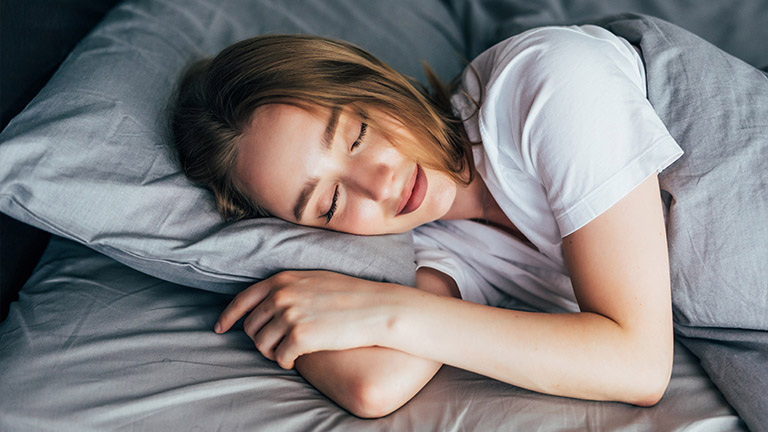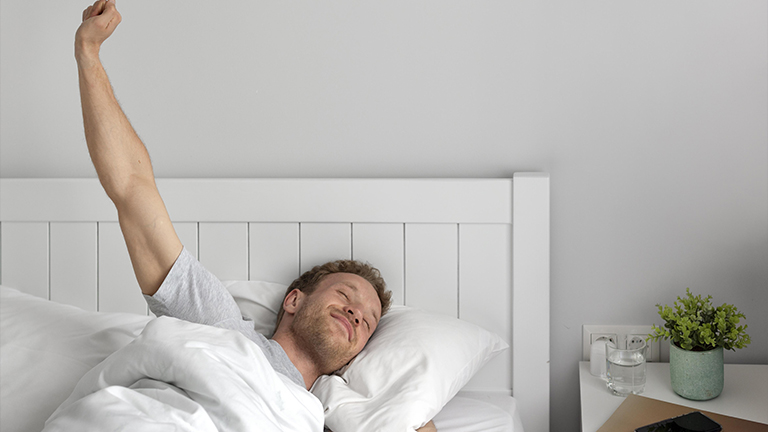Are you struggling with sleepless nights and wondering how to fix insomnia without relying on medication? You’re not alone. Millions of people worldwide suffer from insomnia, but the good news is that natural remedies and lifestyle changes can help restore healthy sleep patterns.
In this comprehensive guide, we’ll explore effective, drug-free strategies to fix insomnia and improve sleep quality. From relaxation techniques to dietary adjustments, we’ll cover everything you need to know to achieve restful sleep naturally.
Understanding Insomnia: Causes and Symptoms
Before learning how to fix insomnia, it’s essential to understand what causes it. Insomnia is a sleep disorder characterized by difficulty falling asleep, staying asleep, or waking up too early. Common causes include:
- Stress and anxiety
- Poor sleep habits (irregular sleep schedule, excessive screen time)
- Caffeine and alcohol consumption
- Medical conditions (chronic pain, thyroid disorders)
- Environmental factors (noise, light, uncomfortable mattress)
Symptoms of insomnia include:
- Daytime fatigue
- Mood swings
- Difficulty concentrating
- Frequent waking during the night
Now, let’s dive into proven ways to fix insomnia without medication.
1. Establish a Consistent Sleep Schedule
One of the most effective ways to fix insomnia is by regulating your sleep-wake cycle. Your body’s internal clock (circadian rhythm) thrives on consistency.
How to Do It:
- Go to bed and wake up at the same time every day (even on weekends).
- Avoid long naps during the day (limit to 20-30 minutes).
- Gradually adjust your bedtime if needed.
2. Create a Relaxing Bedtime Routine
A calming pre-sleep routine signals your brain that it’s time to wind down.
Effective Relaxation Techniques:
- Reading a book (avoid stimulating content)
- Warm bath or shower (helps lower body temperature for sleep)
- Meditation or deep breathing exercises (reduces stress)
- Listening to soothing music or white noise
3. Optimize Your Sleep Environment
Your bedroom setup plays a crucial role in sleep quality.
Tips to Improve Sleep Environment:
- Keep the room dark (use blackout curtains).
- Maintain a cool temperature (60-67°F or 15-19°C).
- Invest in a comfortable mattress and pillows.
- Reduce noise pollution (use earplugs or a white noise machine).
4. Limit Stimulants and Heavy Meals Before Bed
What you consume can significantly impact your ability to sleep.
What to Avoid:
- Caffeine (coffee, tea, chocolate) at least 6 hours before bed.
- Alcohol (disrupts deep sleep).
- Nicotine (stimulates the brain).
- Heavy, spicy, or fatty meals close to bedtime.
Sleep-Friendly Alternatives:
- Herbal teas (chamomile, valerian root)
- Light snacks like bananas or almonds (contain sleep-promoting nutrients)
5. Exercise Regularly (But Not Before Bed)
Physical activity helps fix insomnia by reducing stress and promoting deeper sleep.
Best Practices:
- Engage in moderate exercise (walking, yoga, swimming).
- Avoid intense workouts 2-3 hours before bedtime.
- Morning or afternoon workouts are ideal.
6. Manage Stress and Anxiety
Mental health plays a key role in sleep quality.
Stress-Reduction Techniques:
- Mindfulness meditation
- Journaling (write down worries before bed)
- Progressive muscle relaxation
- Cognitive Behavioral Therapy for Insomnia (CBT-I)
7. Try Natural Sleep Aids
Certain supplements and herbs can help fix insomnia naturally.
Effective Natural Remedies:
- Melatonin (regulates sleep-wake cycles)
- Magnesium (promotes relaxation)
- Lavender oil (aromatherapy for calming effects)
- Valerian root (herbal remedy for sleep)
Always consult a doctor before trying supplements.
8. Limit Screen Time Before Bed
Blue light from phones and laptops suppresses melatonin production.
How to Reduce Blue Light Exposure:
- Avoid screens 1-2 hours before bed.
- Use blue light filters (Night Shift mode on iPhone, f.lux on PC).
- Opt for reading a physical book instead.
9. Rule Out Underlying Medical Conditions
If insomnia persists despite lifestyle changes, consult a healthcare provider. Conditions like sleep apnea, thyroid disorders, or depression may require medical attention.
Final Thoughts
Learning how to fix insomnia without medication is possible with the right approach. By improving sleep hygiene, managing stress, and making mindful lifestyle changes, you can achieve better sleep naturally.
By following these steps, you can fix insomnia and enjoy restful, rejuvenating sleep—without relying on medication.
Do you have any tips that helped you overcome insomnia? Share your experience in the comments below!



